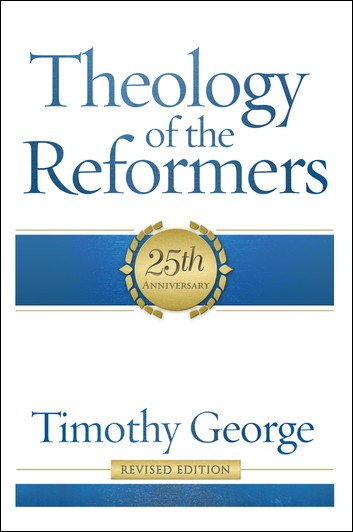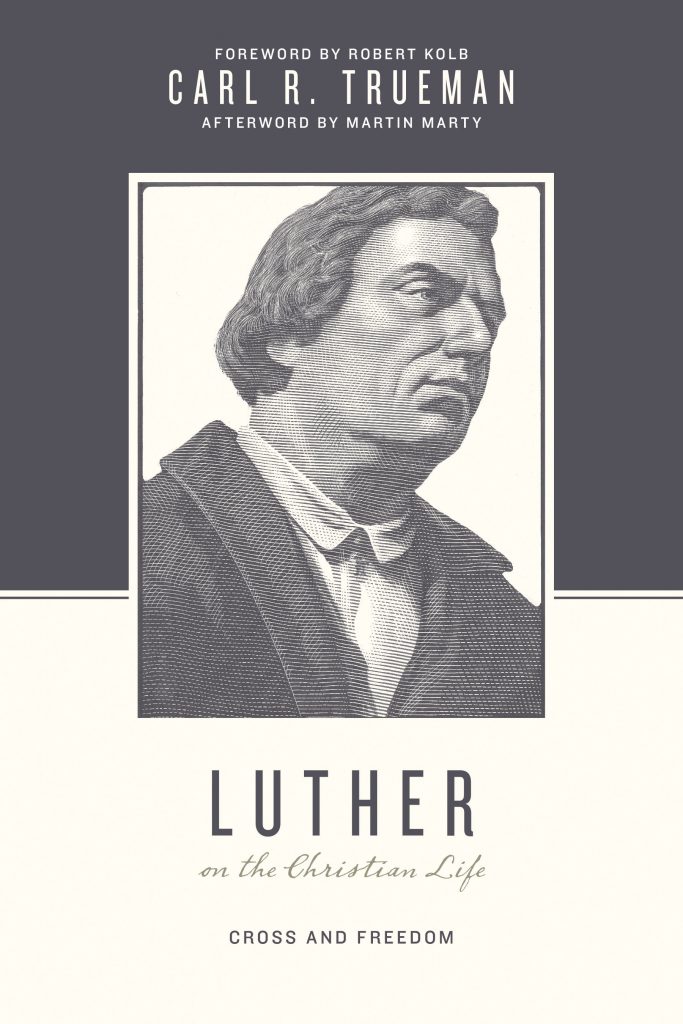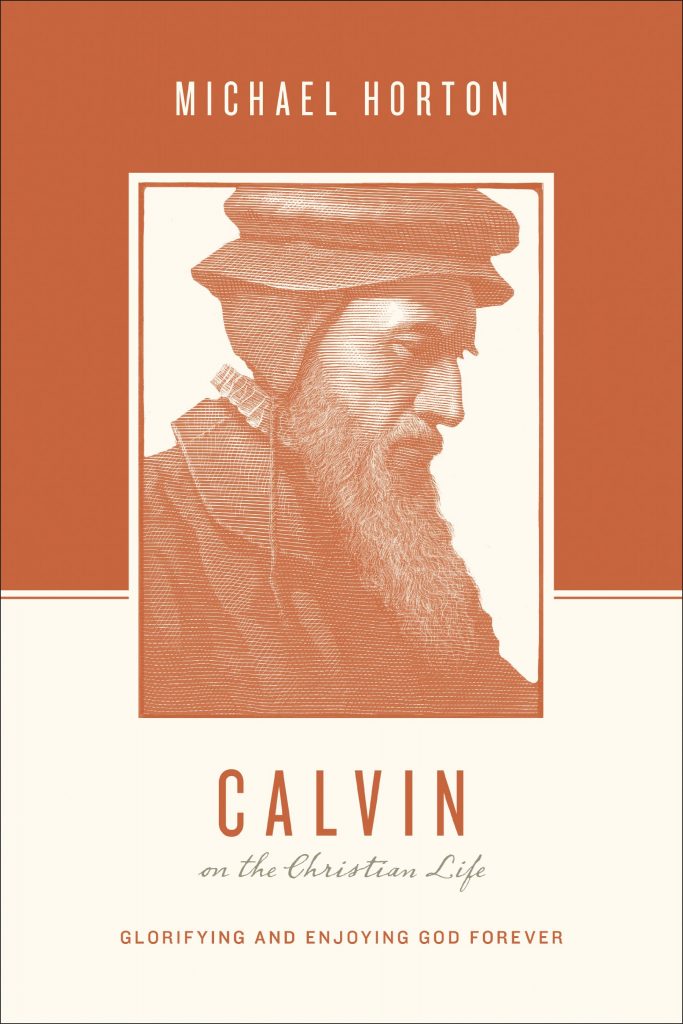CERC Blog
The Protestant Reformation: 3 Books to Get You Started!
Posted on 25 Oct 2019 by CERC
The Protestant Reformation: 3 Books to Get You Started!

The Protestant Reformation.
Families were torn apart, wars were waged, states broke off from the church, and even the church itself was split into factions. All because of the Protestant Reformation (“Reformation”). Thus, it is of little surprise that the Reformation has been called the most divisive event in history by some. Yet, despite the era of strife that arose after and because of it, the Reformation was worthy, because it championed the following things that many Christians now take for granted: free access to the Word of God for all, priesthood of all believers, and most importantly, the preservation of the apostolic Gospel.
So, with Reformation Day 2019 coming up, here are 3 books you should pick up to celebrate the Reformation spirit this year!

Theology of the Reformers
by Timothy George
The centuries leading up to the Reformation saw a society being preoccupied with death, culminating in spiritual emptiness and loss of meaning in life. Coupled with these uncertainties was the decline of confidence in the authority of the Church, paving the way for the spark of Reformation.
The Reformation was complex. Out of all the political strife and doctrinal debacles, our forefathers fought hard to uphold the well-established truths we have today. In this book, Dr. Timothy George attempts to make navigating the Reformation easier for you.
In the 25th Anniversary revised edition, Dr. George highlights the lives and teachings of 5 major Reformers, namely, the 3 main Magisterial Reformers: Martin Luther, Huldrych Zwingli and John Calvin, who impacted deeply the course of the Reformation, Menno Simons, the leader of the Anabaptists, as well as William Tyndale, the theologian famed for translating the Bible from Hebrew and Greek into English.
Why Should You Read This?
The Reformers fought with much sweat and blood to preserve the apostolic teachings of Jesus Christ. They were not trying to change the church but to save it. So, as we peer through the window of time to a period where having a cough meant death was looming, and religion was despair instead of hope, let us be thankful for the people who were concerned for the truth, who made the Gospel freely available, and let us be sober-minded about the Church’s history, as we read about the people who gave up their lives defending it.
Moreover, we should appreciate the important truths that these Reformers fought for. These 5 Reformers were distinct in their own ways, but they valued God and His sovereignty in His elect choice over all things. They also upheld important truths regarding the primacy of Scripture, and how Scripture leads to worship in the church. As we live in this seemingly safe modern society, we must watch ourselves so we do not lose sight of these truths, especially when they can mean life or death, even for us.
This is a scholarly book written with simple enough language that anyone can easily understand. A favourite for both seminary students and laypeople alike.

Luther on the Christian Life
by Carl Trueman
For a slightly more breathtaking ride, Carl Trueman takes you through the larger-than-life story of a law student-turned-monk, who, upon realising that the church was wrong by Scripture, became a celebrity after nailing his Ninety-five Theses to the door of Wittenberg Castle Church. He later engaged in debates, sided with an alleged heretic, went on trial (at the Diet of Worms), got into heated arguments, before being kidnapped for 4 years in a castle.
Trueman captures the formative ideas of the Reformation by addressing Luther’s subversion of the Theology of Glory in favour of a Theology of the Cross, how Luther’s understanding of the creative power of God’s Word translated to law and grace, as well as certain ideas that may seem odd in the modern-day context, such as his views on Baptism and The Last Supper.
A very raw, down-to-earth book, written about a very raw, down-to-earth man.
Why Should You Read This?
Martin Luther is well known for being a radical. For some, he is seen as a mad monk driven to split the church. For others, he is a folk hero, the founder of a new religion, the guardian of truth. In reality, he was just a man gripped to his core by the Gospel. Which is why we too are able to follow his footsteps in fighting for the truth.
With the 21st century so far removed from the Reformation, we overlook the fruits of Luther’s legacy: his grasp of humanity’s utter depravity. His exposition of the gospel is Christianity at its core: How can we, undeserving sinners, even dare to face God? In this modern age, we forget the fear of God in His glory, just as the past generations forgot the grace of God in His mercy. We ought to go back to our roots, ad fontes.

Calvin on the Christian Life
by Michael Horton
The Theologians on the Christian Life series that includes the above-mentioned Luther on the Christian Life, also includes an entry about Calvin on the Christian Life. Admittedly, there are many myths, legends and misconceptions about the man John Calvin, but Michael Horton’s biography-cum-summary of the Reformer will show you a practical and down-to-earth take on this soft-spoken man’s insightful overview of the Christian religion.
“What is the relation between doctrine and life?”
“What role does Christ play in my life, in the church, in the society and the Universe as a whole?”
“How can I be Christian in every part of my life?”
If these are questions you find yourself asking, you are in luck! Horton answers these questions by drawing attention to Calvin’s theology, which knows God for who He is and knows Christ as the Source and Goal of all things, and how this view gives purpose and function to church, society, and life, for a Christian.
Why Should You Read This?
Is Calvinism merely an intellectual exercise? Is it just about TULIP? An alternative to Arminianism?
From Horton’s portrayal of the Reformer, the answer is a resounding “No”. Calvin himself said that the goal of his works is not idle speculation, but to explain how God reveals himself through his Word. Theology, the study of God, should naturally lead us to the worship of God in His divine work.
Our culture contrasts this, as the talk of doctrines and theology in our culture invites only scornful looks of indifference, a label of ‘theological intellectuals’, because all we have to do is to feel God’s love. We have come to a point where theology is complicated, bulky, an obstruction for people to know God because of its difficulty, and conclude that it is not necessary. Yet when we apply theology rightly as Calvin shows us, we see God as the true source and end goal of all things. That all things were made will conclude with, in, and for, his final glory.
“Wir sein Pettler, Hoc est Verum”
“Half in German, half in Latin: “Wir sein Pettler, Hoc est Verum” (“We are beggars, that is true”). Luther’s whole approach to the Christian life is summed up in these last words. The posture of the human vis à vis God is one of utter receptivity. We have no legs of our own on which to stand. No mystical “ground of the soul” can serve as a basis of our union with the divine. We can earn no merits that will purchase for us a standing before God. We are beggars–needy, vulnerable, totally bereft of resources with which to save ourselves. For Luther, the good news of the gospel was that in Jesus Christ God had become a beggar too. God identified with us in our neediness. Like the good Samaritan who exposed himself to the dangers of the road to attend to the dying man in the ditch, God “came where we were.”
(George, Timothy. Theology of the Reformers
(p. 105). B&H Publishing Group. Kindle Edition)
At the heart of it, the Reformation sought to recover one simple truth: “Let God be God”.
Lest you think otherwise, the Reformation has not ended. Wherever culture apart from Scripture develops, there the danger looms. In other words, the Church remains vulnerable; therefore we must be vigilant as we guard the deposit of the Gospel entrusted to us by the Holy Spirit that dwells within us (2 Tim 1:14).
As Reformation Day looms, let us be reminded that we are all beggars before God, that in and of ourselves there is nothing in us that would qualify us as righteous before God. Therefore, in our despair, let us cling on ever so tightly to Jesus Christ our hope, for God has imputed Jesus’ righteousness unto us so that we might be saved.
Let us continue the defence of the Gospel that the Reformers fought so hard to preserve – the Gospel that gives all glory to God.
Ecclesia semper reformanda est.
Soli Deo Gloria.
